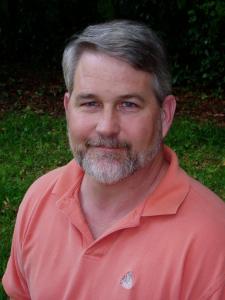Richard "Dick" Brame

1997 North Carolina Fisheries Reform Act
The Fisheries Reform Act is the most significant fisheries legislation in NC history.
In 1994, the North Carolina General Assembly approved a moratorium on the sale of new commercial fishing licenses and established the 19-member Fisheries Moratorium Steering Committee to oversee a study of the state's entire coastal fisheries management process and to recommend changes to improve that process. The Moratorium Steering Committee included legislators, fisheries managers, scientists, commercial fishermen, and recreational fishermen. The committee commissioned six research studies and reviewed a broad range of issues, including fishing licenses, fishing gear, habitat protection, agency organization, and law enforcement. The committee issued a draft report in the late summer of 1996, held 19 public meetings across the state, and adopted a final report in October 1996 that formed the basis for the Fisheries Reform Act. Governor James B. Hunt signed the Act into law on August 14, 1997.
The 1997 North Carolina Fisheries Reform Act: An Oral History Perspective was made possible by the North Carolina Sea Grant Community Collaborative Research Grant Program.
Mary Williford
Richard "Dick" Brame was born in Brattleboro, Vermont, but grew up in eastern North Carolina. He has a long history of working for not-for-profit organizations, including the Izaak Walton League, the North Carolina Wildlife Federation, the Pennsylvania Wildlife Federation, and the Coastal Conservation Association (C.C.A.). Brame joined the C.C.A. in 1989 and served as its first Executive Director until 1999. He then transitioned to the role of Fisheries Director, representing the C.C.A. at Atlantic States and South Atlantic council meetings. Around 2013 or 2014, his focus shifted to the Gulf Council, where he primarily deals with federal fishery issues.
This interview with Dick Brame, conducted by Scott Baker on July 26, 2016, provides an in-depth look at Brame's work history, his role in the Coastal Conservation Association (C.C.A.), and his thoughts on fisheries management. Brame discusses his transition from state to federal level management and the importance of fisheries management. He shares a memorable anecdote from a meeting about the saltwater license system, highlighting the passion and intensity that often accompany discussions about fisheries. The interview also delves into the Fisheries Reform Act, with Brame discussing the significant leaders of the Act and their roles, including Bob Lucas and Bill Hogarth. He also reflects on how fisheries were managed prior to the Act and the state of commercial and recreational fishing. The interview concludes with a discussion on the potential for growth in the fisheries sector and the role of aquaculture.
Please Note: The oral histories in this collection are protected by copyright and have been created for educational, research and personal use as described by the Fair Use Doctrine in the U.S. Copyright law. Please reach out Voices@noaa.gov to let us know how these interviews are being used in your research, project, exhibit, etc. The Voices staff can help provide other useful resources related to your inquiry.
The NOAA mission is to understand and predict changes in climate, weather, oceans, and coasts, to share that knowledge and information with others, and to conserve and manage coastal and marine ecosystems and resources. The Voices Oral History Archives offers public access to a wide range of accounts, including historical materials that are products of their particular times, and may contain offensive language or negative stereotypes.
Voices Oral History Archives does not verify the accuracy of materials submitted to us. The opinions expressed in the interviews are those of the interviewee only. The interviews here have been made available to the public only after the interviewer has confirmed that they have obtained consent.
